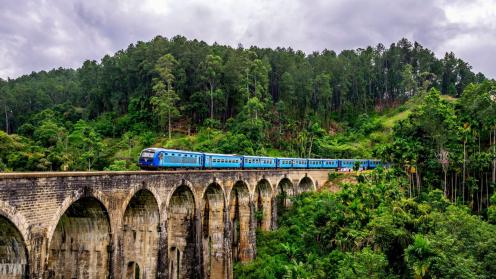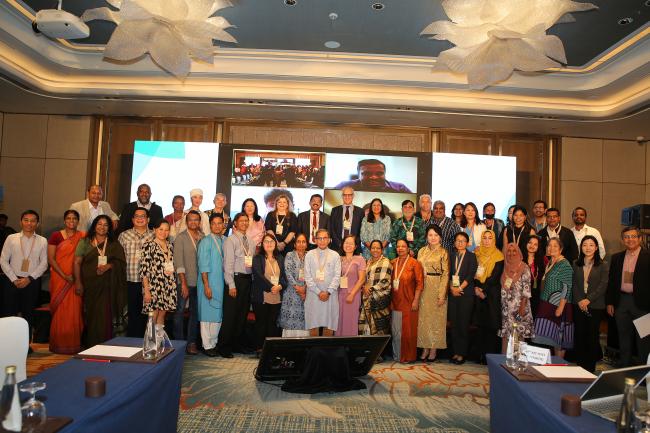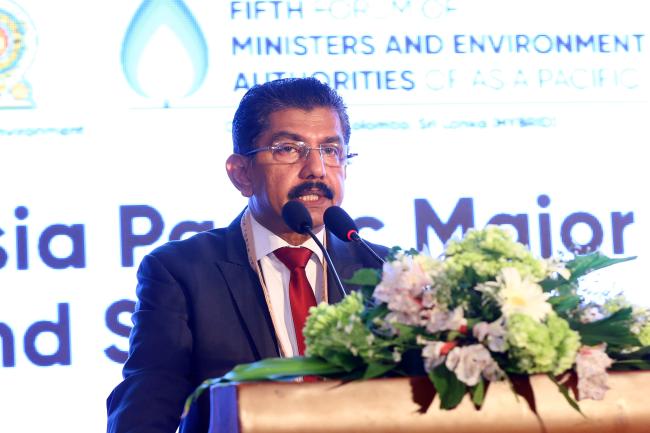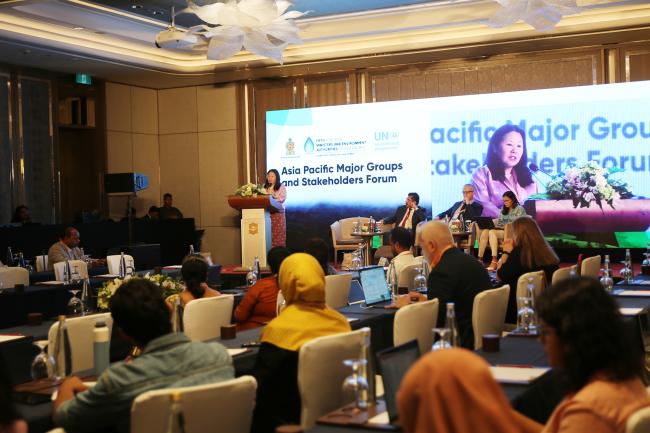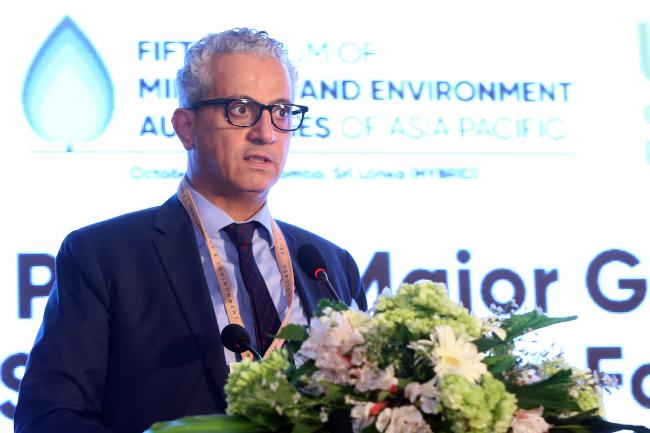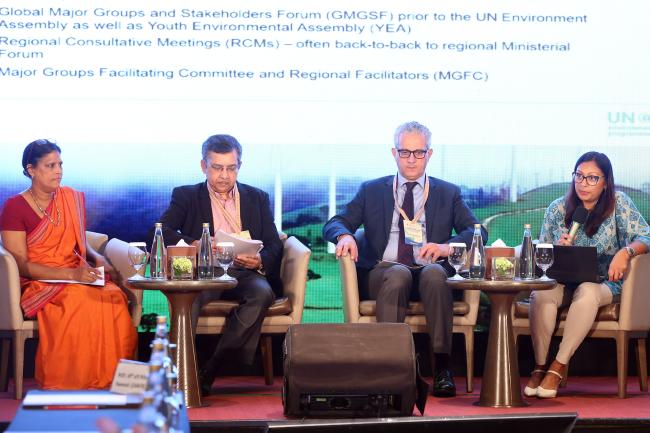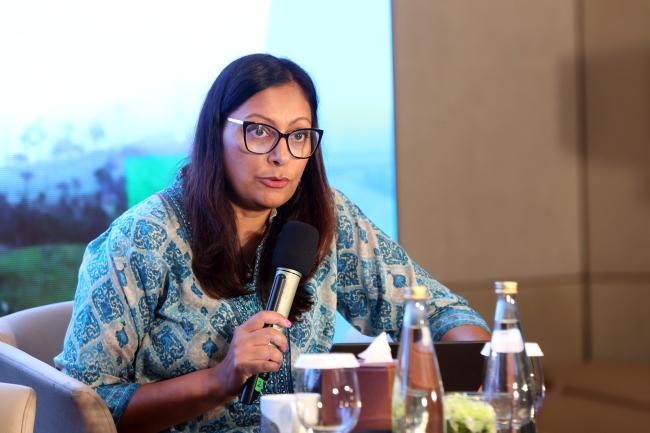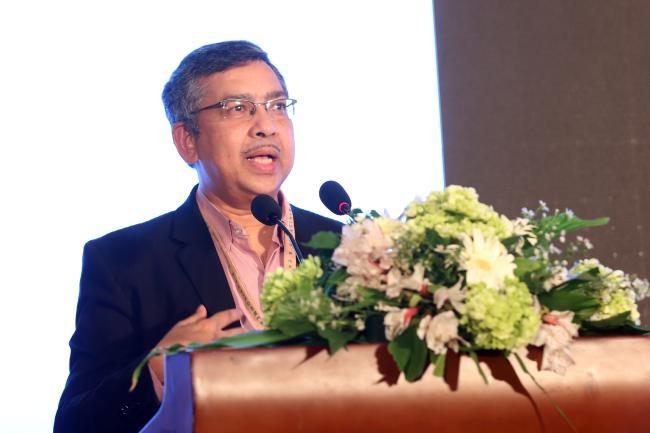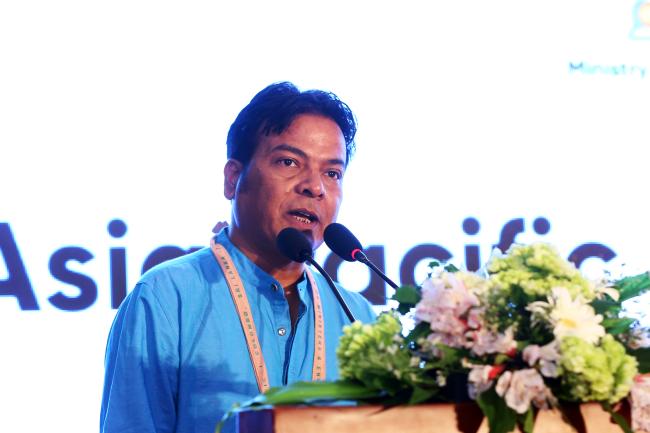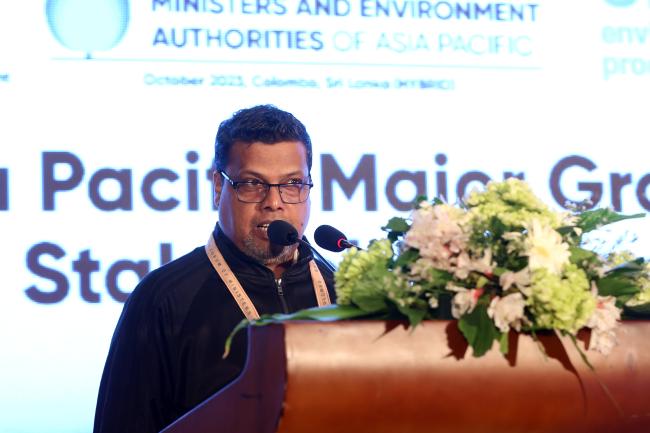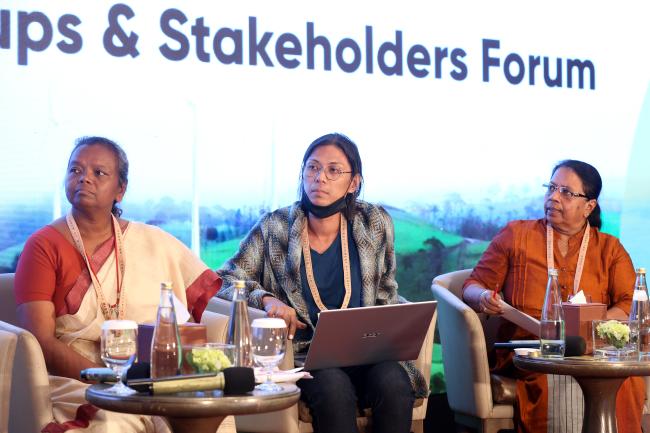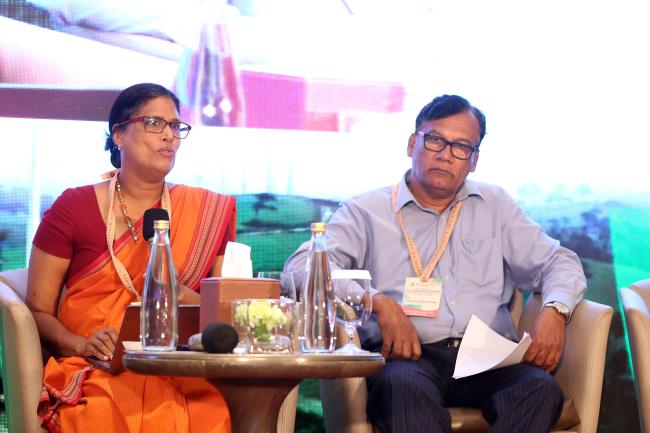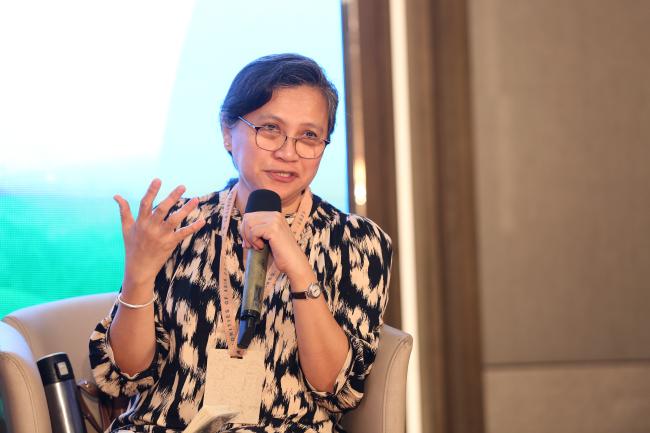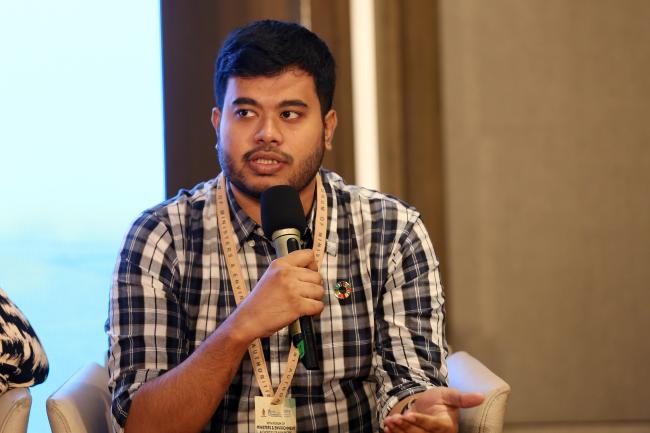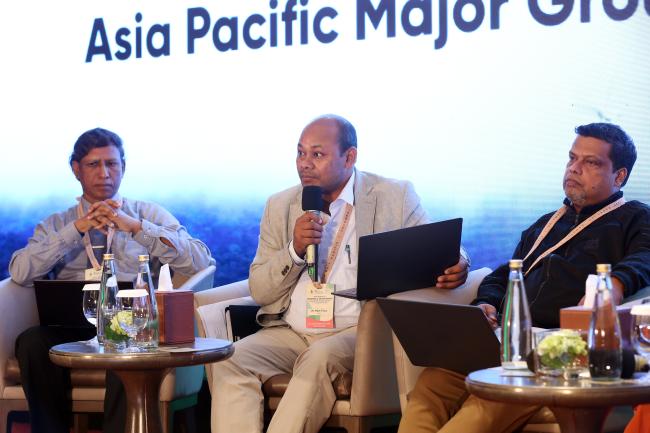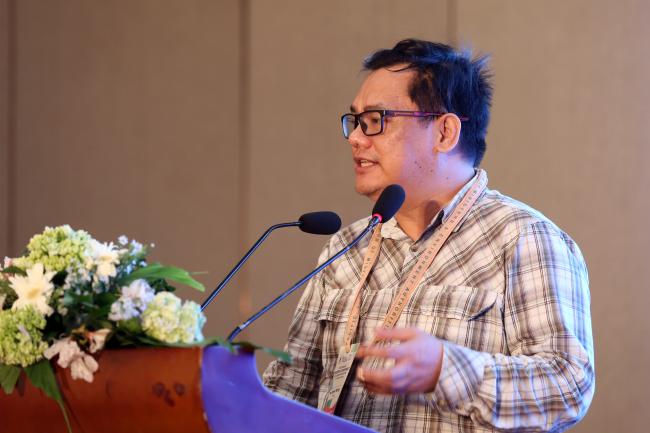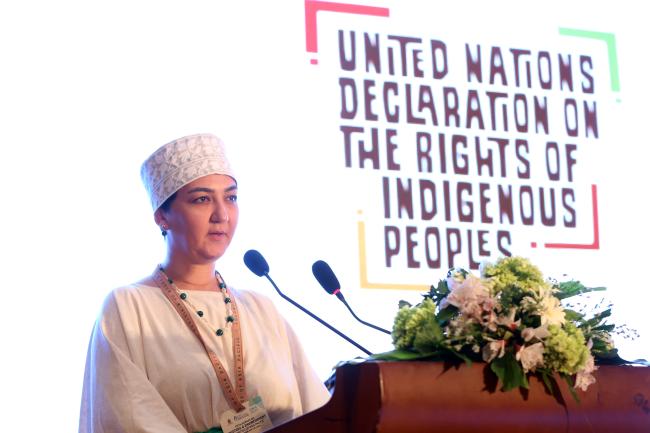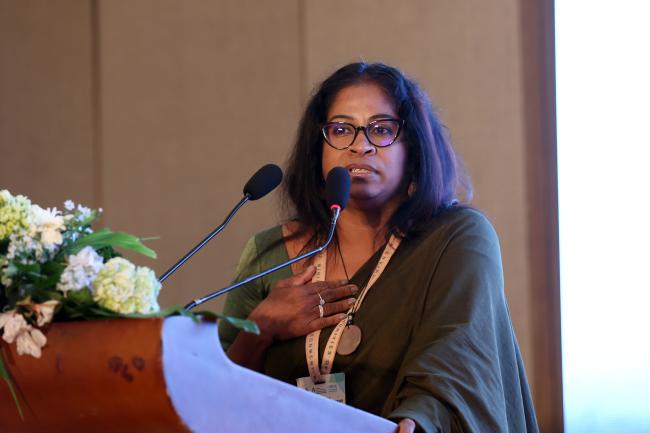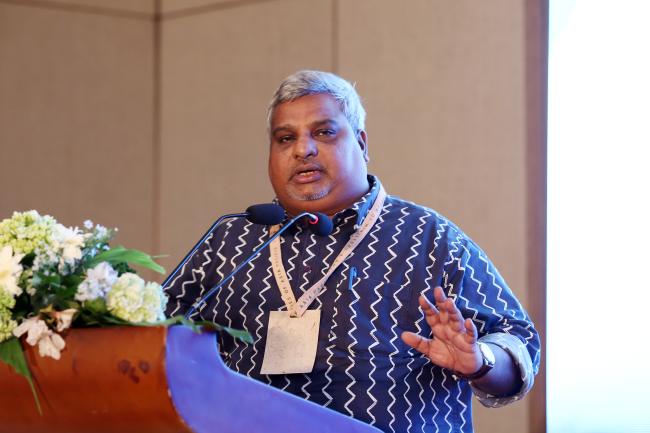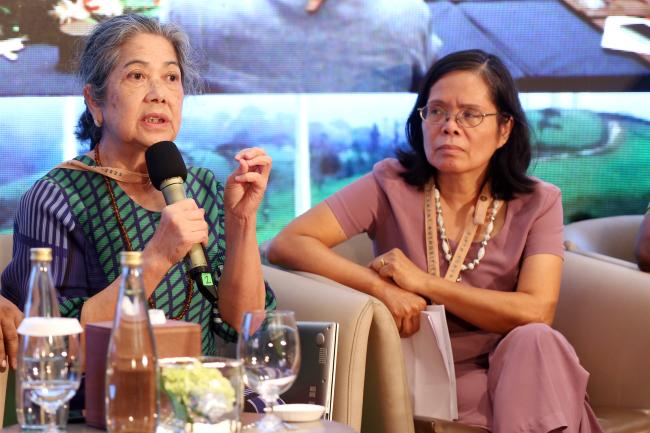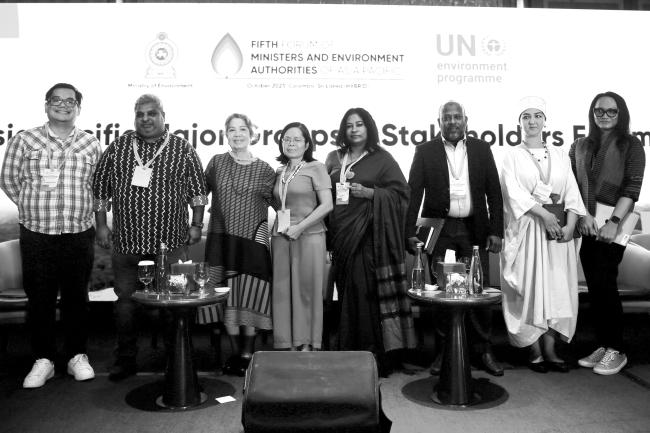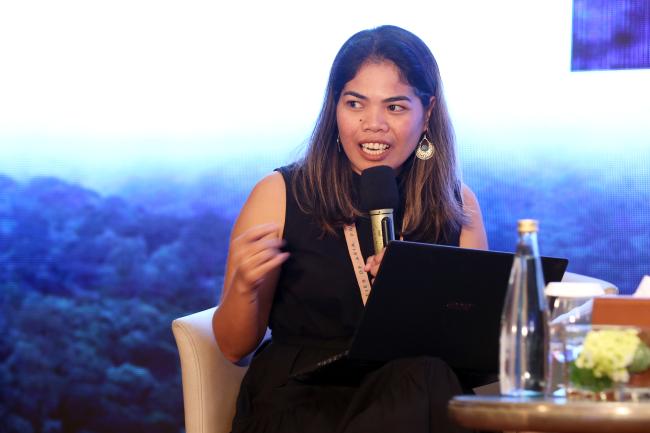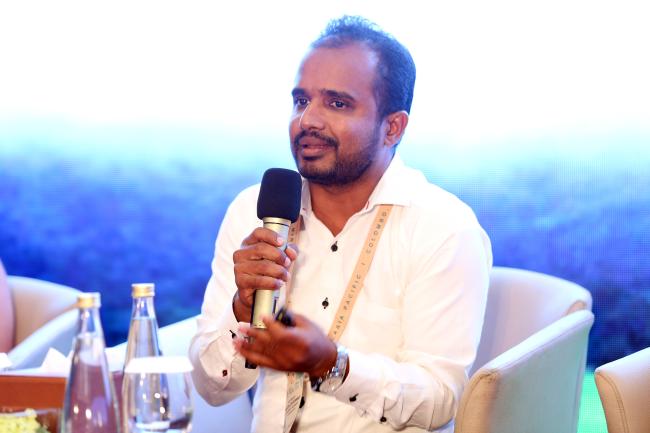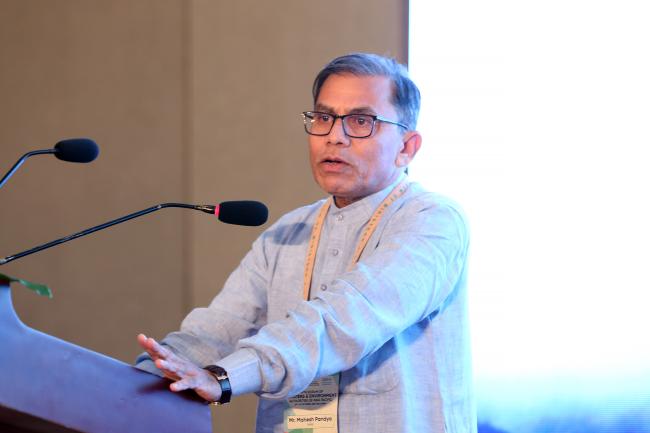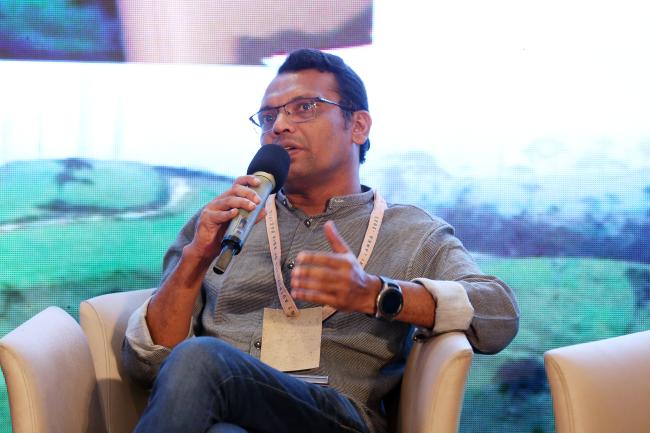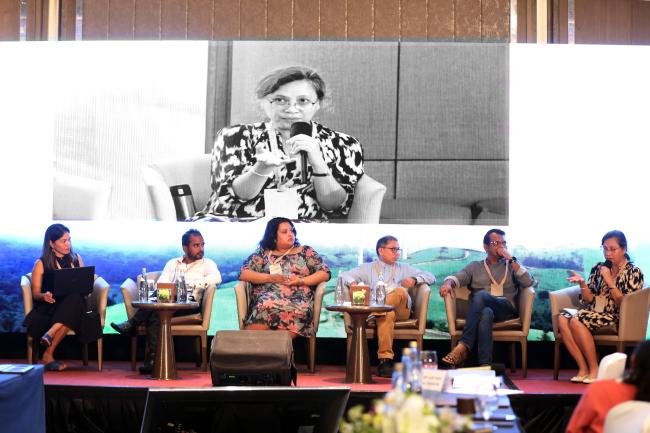Asia Pacific Major Groups Forum on Environment
Major groups and stakeholders (MGOS) are an important component of environmental stewardship. Their participation and engagement in environmental processes is crucial to ensuring inclusive and just solutions to addressing global environmental problems, leaving no-one behind.
The Asia MGOS Forum on the Environment convened to strategize the MGOS’ position and inputs to the fifth Forum of Ministers and Environment Authorities of Asia Pacific, which will take place from 3-6 October 2023, with a goal of integrating a message from the MGOS within the region's message to the sixth session of the UN Environment Assembly (UNEA-6), to be held in the first quarter of 2024.
Opening Session
Ajay Kumar Jha, Asia Pacific Regional Facilitator of MGOS, opened the session. Anil Jasinghe, Secretary, Ministry of Environment, Sri Lanka, highlighted the opportunity for MGOS to forge partnerships that transcend borders, thereby contributing to a better future for the region.
Dechen Tsering, Regional Director and Representative, UNEP Regional Office for Asia and the Pacific (ROAP), noted ongoing progress in addressing plastic pollution, highlighting that despite the backdrop of global challenges, the world was still able to come together at UNEA-5.
Road to UNEA-6: State of Affairs and Regional Priorities
Karin Fernando, Centre for Poverty Analysis (CEPA), moderated the panel. Firas Khouri, Jordan, and Chair, Committee of Permanent Representatives (CPR) to UNEP, urged for constructive engagement in the lead-up to UNEA-6.
Radhika Ochalik, Secretary, Governing Bodies, UNEP, drew attention to the 2024 Global MGOS Forum, as an opportunity for inputs to UNEA-6.
Subrata Sinha, UNEP ROAP, reported on Sri Lanka’s plans to launch the Climate Justice Forum for the vulnerable and developing countries at the 2023 UN Climate Change Conference.
Mamta Kujur, Founder, Jashpur Jan Vikas Sanstha, called for policy implementation that respects the rights of Indigenous Peoples and local communities.
Isagani Bacasmas, Chairman and CEO, Ladlad Caraga Incorporated, stated that delivering on environmental justice cannot occur without including communities experiencing multiple systems of oppression and discrimination, including the LGBTQ+.
Visaka Dharmadasa, Founder, Association of War Affected Women, noted that peacebuilding is fundamental to action on the triple planetary crisis.
Road to UNEA-6: Looking Ahead
Discussing the environmental approach to minerals and metals management, Elenita “Neth” Daño, Co-Executive Director, Action Group on Erosion, Technology and Concentration (ETC Group), called for a human rights-based approach due to the exploitative nature of extractive practices.
Hemantha Withanage, Executive Director, Centre for Environmental Justice, urged that legal instruments pursue justice against waste-related offenses, noting the links between toxic chemicals use and cancer in the region.
Prem Singh Tharu, Asia Indigenous Peoples Pact, discussed progress achieved in the Intergovernmental Negotiating Committee on plastic pollution, urging MGOS to engage in the next round of negotiations at the November 2023 meeting.
Wali Haider, Roots for Equity, lamented corporate interests in nature-based solutions and expressed concern over the push for largescale, monoculture tree plantations.
Peoples’ Solutions and Innovations
This session was facilitated by Gomer Padong, Institute for Social Entrepreneurship in Asia (ISEA). Hanieh Moghani, Centre for Sustainable Development and Environment (CENESTA), drew attention to the suffering of Indigenous Peoples and local communities, highlighting causes including unilateral coercive measures such as sanctions.
Kala Peiris, Sri Lanka Centre for Development Facilitation (SLCDF), stressed that the climate crisis is not “gender neutral” but creates a multiplier effect, escalating social, political, and economic tensions.
Ravadee Prasertcharoensuk, Director, Sustainable Development Foundation (SDF), lamented that small-scale fishers of Thailand have “become invisible” due to the expansion of commercial fisheries.
Ajaykumar V.B., Executive Director, Equitives Foundation, stressed the systemic discrimination and violence faced by the Dalit community, marginalized due to some countries’ class-based caste system.
Arvi Bastian, Founder, Free and Equal Rights, underscored the intersectional nature of the triple planetary crisis, and noted the persistent lack of meaningful civil society engagement and capacity building.
Enhancing Transformative Multilateral Actions
This session was facilitated by Joy Hernandez, International Trade Union Confederation.
Henaka Rallage Chiranthi Thavisha, Hype Sri Lanka, explained that the lack of mainstreaming and integration is manifest in outdated conservation legislature and corruption.
Daño stressed that the MGOS statement should discredit the overreliance on scientific expertise in the science-policy interface in favor of an approach including Indigenous knowledge systems. Syed Jahangir Hasan Masum, Executive Director, Coastal Development Partnership, called for an end to the “tyranny of experts,” and embracing of Indigenous knowledge.
Jayantha Wijesingha, Co-Founder, Rainforest Protectors of Sri Lanka, referred to UNEA as the “world’s parliament on the environment.” Mahesh Pandya, Director, Paryavaran Mitra, expressed concern that the Polluter Pays Principle is turning into the “pay to pollute principle,” as the private sector is always able to pay.
Closing Session
Jha noted that the MGOS statement contains broad recommendations to the fifth Forum of Ministers and Environment Authorities of Asia Pacific. Fernando urged participants to submit comments prior to the high-level meeting.
The Forum concluded at 6:04 pm.
All ENB photos are free to use with attribution. For the 5th Forum of Ministers and Environment Authorities of Asia Pacific (5FMAP), please use: Photo by IISD/ENB | Franz Dejon.
To receive free coverage of global environmental events delivered to your inbox, subscribe to the ENB Update newsletter.
